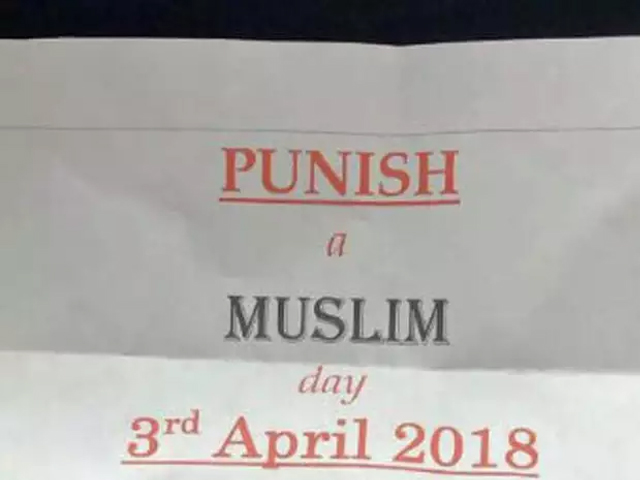
My grandmother: The unwanted martyr
No real explanation was given as to why bombs rained down on that dusty street in Rawalpindi, 26 years ago.
Normally, when my friends would tell me how their grandparents passed away, they would speak of ill-health and chronic pain, which one would expect as consequences of old age. I would, however, always keep that information about my grandparents closed off from the rest of the world. It’s a topic of great sensitivity amongst my family and has always been brushed under the carpet by my mother, as a way of preventing tears from streaming down her otherwise stoic face.
After all, it’s not particularly straightforward for me to discuss the fact that my maternal grandmother was blown up by a bomb, in a country that was not at war or involved in any kind of internal political fracas at the time.
No real explanation was given for the day bombs rained down on that dusty street in Rawalpindi, Pakistan, 26 years ago.
Was it sabotage, espionage or just plain incompetence on the part of those who were meant to be guarding that horde of military gold?
Even after all these years, no definitive conclusion has been given about what happened but those who survived to tell the tale got an early cinematic preview of hell, in the shape of the Ojhri Camp disaster.
It was a sunny, relatively warm day on April 10, 1988, with spring blooming for the innocuous population of Rawalpindi. People were going about their business with assurance and a general trust that it was just another day. Amidst the hustle and bustle, my grandmother woke up that day at her home in Satellite Town, Rawalpindi, roughly five miles from the Ojhri Camp.
Being the mother of 13 children, and nani (grandmother) to nearly 20 grandchildren, she was the focal point for the whole family.
She epitomised the stereotypical role of a grandmother, possessing a warm disposition and a sheer love of her grandchildren, which greatly surpassed the love she had for her own progeny. A matriarch who was able to handle anything life threw at her with steely self-confidence, she once even threw a shoe at a devout Muslim relative, not caring about the consequences or what society might think.
She was blissfully unaware that in less than 12 hours, she would be dead.
Ojhri actually means beef tripe in Urdu, which is ironic considering Ojhri Camp stored the masticated remnants of USA’s love-hate relationship with the Mujahideen (fighters).
It was a purpose-built military camp to assist the Mujahideen in their quest for jihadist stardom against the USSR in Afghanistan, and it was a time when America really loved the words ‘holy war’ – something that it vehemently used as propaganda against the Soviets.
American missiles would be stored at the camp, ready for shipment across the border to Afghanistan, as and when the need arose against the invading Soviets. The camp was an Achilles’ heel for Pakistan, exposed and ripe for sabotage. However, on April 10, no one could have predicted just how much of a nuisance it would turn out to be.
A fire that broke out in the camp proved to be the trigger, sending shrapnel and deadly missiles flying through the streets of Rawalpindi and the nation’s capital, Islamabad, which was less than 15 miles away from the camp. At first, people thought fireworks were accidentally being set off but when large plumes of smoke started mushrooming on the city’s horizon, the mood soon became serious and panic-driven. My aunt would often tell me that it felt as if the Day of Judgement had arrived.
People were running everywhere and deafening booms of falling missiles could be heard past Islamabad and into the neighbouring villages. Amidst this chaos my grandmother, resorting to her maternal instincts, grabbed her grandchildren and ran to a nearby park as an attempt to avoid falling buildings or missiles from exploding within her home.
I often resort to tears thinking about how scared she must have felt at that very moment.
It was during this race to safety that she perished, succumbing to shrapnel that lodged itself into her back. She was found face-down on the road with her arms still positioned in a manner that resembled a protective hug – no doubt meant for her beloved grandchildren.
In the aftermath of the disaster, a typical blame game started, with General Ziaul Haq and his political opponents blaming each other, which has been a continuous trend whenever some tragedy strikes in Pakistan today. At the time, rumours were rife that General Ziaul Haq, military president, was earning millions of dollars through illegal arms trading and he apparently ordered the camp to be blown up as a way of hiding his tracks.
However, the dominant opinion is that it was sabotage by Soviet fighters, who wanted to punish Pakistan, and ultimately the USA, for getting involved in the Afghan war.
To this day, no report or finding has been made public regarding the root cause of the disaster, even though Mohammad Khan Janejo, the prime minister at the time, commissioned two committees to establish an inquiry into the cause of the incident. Eventually the fire was labelled as ‘God’s will’ and the matter was left alone, as no one would ever really question what God willed.
The intellect of placing a military depot brimming with missiles, white phosphorous bombs and other weapons of annihilation right next to a thriving residential cove always befuddled people afterwards. The state media at the time tried to play down the events of the day and no final body count was ever given, though rough estimates state that more than 5,000 people died.
To this day, missiles and empty shells are discovered in parts of the area, revealing the true extent of the damage done that day.
What angers me most is the lax response of the authorities afterwards.
As a way of silencing an uprising, compensations were offered to the victims’ families but this was a paltry attempt at hiding the state’s incompetence. My grandmother died in vain and no one, to this day, knows why. She should have been alive today to see those grandchildren, whom she saved, happily married and raising their own children.
In December 2013, I visited her grave and tried to hold back the tears whilst my mother cleared the marble-lined grave from weeds and wayward bushes. I wish I had the chance to put my head on my grandmother’s lap or hold her hand and let her tell me that all my problems would eventually be resolved. Her loss has been a very bitter pill to swallow and I know full well that I would have been a far more resilient woman today had I had my grandmother in my life.
It only seems right for the Pakistani government to issue some kind of statement, giving the victims some respite over what happened 26 years ago.
As terrorism has now reared its ugly head in the form of the Tehreek-e-Taliban Pakistan (TTP), Pakistan is once again bearing the brunt of the vicious dichotomy between those opting for liberal Islam and those desiring the implementation of Sharia Law in its entirety.
However, this time the matter is more perilous as Pakistan has amassed nuclear weapons and a repeat of April 10, 1988, would be far more disastrous and devastating for the entire region. The Pakistani government must absolutely ensure all military depots and armaments are sufficiently secure, so history does not repeat itself and the skies remain clear of falling missiles.




COMMENTS (17)
Comments are moderated and generally will be posted if they are on-topic and not abusive.
For more information, please see our Comments FAQ